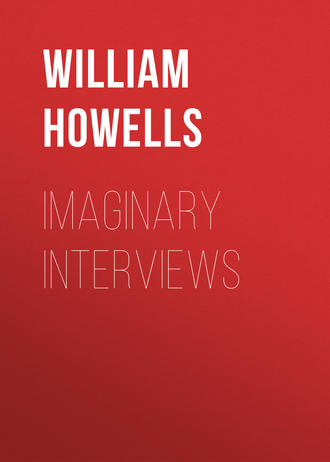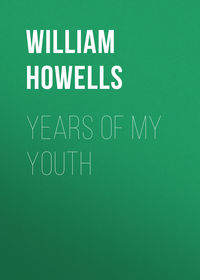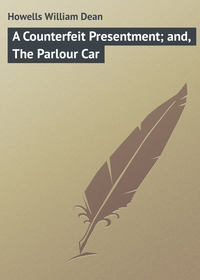 полная версия
полная версияImaginary Interviews
"We assure you we are not. It is no more a conundrum than the others. Come: question!"
"Well, in the first place, I should like to know what a plot is. Something that has occurred to you primarily as an effect from your experience or observation? Or something you have carpentered out of the old stuff of your reading, with a wooden hero and heroine reciprocally dying for each other, and a wooden villain trying to foil them?"
"You had better ask a current editor or a stagnant. Do you confess yourself posed by this plain problem? Do you give it up?"
"For the present. Perhaps I may gather light from the next question."
"Then here it is: '4. What do you consider the primary weakness in the average stories or verses of the old writers?"
"Oh, that is easy. The same as in the average stories and verses of the younger writers – absence of mind."
"Are you sure you are not shirking? Cannot you give a categorical answer – something that will really help some younger writer to take the place which you are now more or less fraudulently holding? The younger writers will cheerfully allow that the trouble is absence of mind, but what line of reading would you suggest which would turn this into presence of mind?"
"There is none, except to have themselves newly ancestored. Presence of mind as well as absence of mind is something derived; you cannot acquire it."
"We think you might be a little less sardonic. Now here is the next problem: '5. What are the successful author's necessary qualifications in the matters of natural ability, education, life as he sees it and lives it, technical training, etc?'"
"This will be the death of me!" the prominent author lamented. "Couldn't I skip that one?"
"It seems to cover some of the most important points. We do not think your self-respect will allow you to skip it. At any rate, make an effort to answer it."
Thus challenged, the prominent author pulled himself together. "Oh," he said, sadly, "which of us knows whether he has natural ability or not, and what is education, and what is life as one sees it, and what is technical training? Do these poor young fellows think that one is tall or short by taking thought? It is the same as that, it seems to me; or if you prefer a mystical solution, I should say, if you have a longing, from your earliest consciousness, to write poetry or fiction, and cannot keep from doing it for any long time together, you are possibly born with a gift for it. But this may be altogether a mistake; it may be the effect of your early and incessant scribblings on the minds of spectators wholly incompetent to judge of your abilities, such as your fond parents. This must rather often happen if we can judge from what nine-tenths of what is called literature is composed of. If your longing to write is the real thing, or is not, still education will not help or hinder you in doing it. No man was ever yet taught any art. He may be taught a trade, and that is what most of the versing and prosing is, I suppose. If you have the gift, you will technically train yourself: that is, you will learn how to be simple and clear and honest. Charm you will have got from your great-grandfather or great-grandmother; and life, which is only another sort of school, will not qualify you to depict life; but if you do not want to depict life, you will perhaps be able to meet the demands of what our friend calls the current editors."
Here the prominent author rose, but we stayed him with a gesture. "There is another question, the last: '6. Do you care to convey any hints or suggestions gleaned from your personal experiences in the climb to success that may make easier the gaining of the heights for the beginner?"
The prominent author roared with laughter. "Read that again!" But when we had done so, he became grave, even sorrowful. "Is it really true, then, as we seem to see, that there is a large body of young people taking up literature as a business? The thing that all my life I have fondly dreamed was an art, dear and almost holy! Are they going into it for the money there is in it? And am I, in my prominence – more or less fraudulent, as you say – an incentive to them to persevere in their enterprises? Is that what one has to come to after a life of conscientious devotion to – an ideal? Come, old friend, say it isn't so bad as that! It is? Then" – the prominent author paused and sank weakly into the chair from which he had risen – "perhaps I have been dreaming all these years; but in my dream it seems to me that everything outside of myself which seemed to hinder me has really helped me. There has been no obstacle in my way which if I were at the bottom of the hill, where I might very rightfully be, I would have removed. I am glad that the climb to success, as your friend calls it, has been hard and long, and I bless God for my difficulties and backsets, all of them. Sometimes they seemed cruel; they filled me with despair and shame; but there was not one that did not make me stronger and fitter for my work, if I was fit for it. You know very well that in this art of ours we need all the strength we can get from our overthrows. There is no training that can ever make the true artist's work easy to him, and if he is a true artist he will suspect everything easily done as ill done. What comes hard and slow and hopelessly, that is the thing which when we look at it we find is the thing that was worth doing. I had my downs with my ups, and when I was beginning the downs outnumbered the ups ten to one. For one manuscript accepted, and after the days of many years printed, I had a dozen rejected and rejected without delay. But every such rejection helped me. In some cases I had to swallow the bitter dose and own that the editor was right; but the bitter was wholesome. In other cases I knew that he was wrong, and then I set my teeth, and took my courage in both hands, and tried and tried with that rejected manuscript till the divinely appointed editor owned that I was right. But these are the commonplaces of literary biography. I don't brag of them; and I have always tried to keep my head in such shape that even defeat has not swelled it beyond the No. 7 I began with. Why should I be so wicked as to help another and a younger man over the bad places? If I could only gain his confidence I should like to tell him that these are the places that will strengthen his heart for the climb. But if he has a weak heart, he had better try some other road. There! I have given you all the 'hints and suggestions from my experience' that I can think of, and now let me go."
Once more he rose, and once more we stayed him. "Yes," we said, "no doubt you think you have spoken honestly and faithfully, but you have addressed yourself to the wrong audience. You have spoken to artists, born and self-made, but artists can always manage without help. Your help was invoked in behalf of artisans, of adventurers, of speculators. What was wanted of you was a formula for the fabrication of gold bricks which would meet the demands of current dealers in that sort of wares."
"But if I have never made gold bricks myself, or not knowingly?"
"Ah, that is what you say! But do you suppose anybody will believe you?"
The prominent author put on the hat which he flattered himself was a No. 7, but which we could plainly see was a No. 12, and said, with an air of patronizing compassion, "You have sat here so long in your cushioned comfort, looking out on the publishing world, that you have become corrupt, cynical, pessimistic."
XX
PRACTICAL IMMORTALITY ON EARTH
The talk at a dinner given by the Easy Chair to some of its most valued friends was of the life after death, and it will not surprise any experienced observer to learn that the talk went on amid much unserious chatter, with laughing irrelevancies more appropriate to the pouring of champagne, and the changing of plates, than to the very solemn affair in hand. It may not really have been so very solemn. Nobody at table took the topic much to heart apparently. The women, some of them, affected an earnest attention, but were not uncheerful; others frankly talked of other things; some, at the farther end of the table, asked what a given speaker was saying; the men did not, in some cases, conceal that they were bored.
"No," the first speaker said, after weighing the pros and cons, "for my part, I don't desire it. When I am through, here, I don't ask to begin again elsewhere."
"And you don't expect to?" his closest listener inquired.
"And I don't expect to."
"It is curious," the closest listener went on, "how much our beliefs are governed by our wishes in this matter. When we are young and are still hungering for things to happen, we have a strong faith in immortality. When we are older, and the whole round of things, except death, has happened, we think it very likely we shall not live again. It seems to be the same with peoples; the new peoples believe, the old peoples doubt. It occurs to very, very few men to be convinced, as a friend of mine has been convinced against the grain, of the reality of the life after death. I will not say by what means he was convinced, for that is not pertinent; but he was fully convinced, and he said to me: 'Personally, I would rather not live again, but it seems that people do. The facts are too many; the proofs I have had are irresistible; and I have had to give way to them in spite of my wish to reject them.'"
"Yes," the first speaker said, "that is certainly an uncommon experience. You think that if I were perfectly honest, I should envy him his experience? Well, then, honestly, I don't."
"No," the other rejoined, "I don't know that I accuse your sincerity. But, may I ask, what are your personal objections to immortality?"
"It wouldn't be easy to say. If I could have had my way, I would not have been at all. Speaking selfishly, as we always do when we speak truly, I have not had a great deal of happiness, though I have had a good deal of fun. But things seem to wear out. I like to laugh, and I have laughed, in my time, consumedly. But I find that the laugh goes out of the specific instances of laughability, just as grieving goes out of grief. The thing that at the first and third time amused me enormously leaves me sad at the fourth, or at least unmoved. You see, I can't trust immortality to be permanently interesting. The reasonable chances are that in the lapse of a few æons I should find eternity hanging heavy on my hands. But it isn't that, exactly, and it would be hard to say what my objection to immortality exactly is. It would be simpler to say what it really is. It is personal, temperamental, congenital. I was born, I suspect, an indifferentist, as far as this life is concerned, and as to another life, I have an acquired antipathy."
"That is curious, but not incredible, and of course not inconceivable," the closest listener assented.
"I'm not so sure of that," a light skirmisher broke his silence for the first time. "Do you mean to say," he asked of the first speaker, "that you would not mind being found dead in your bed to-morrow morning, and that you would rather like it if that were actually the end of you?"
The first speaker nodded his head over the glass he had just emptied, and having swallowed its contents hastily, replied, "Precisely."
"Then you have already, at your age, evolved that 'instinct of death,' which Metchnikoff, in his strange book, thinks the race will come to when men begin living rightly, and go living on to a hundred and fifty years or more, as they once did."
"Who is Metchnikoff, and what is the name of his strange book?" the light skirmisher cut in.
"He's the successor of Pasteur in the Pasteur Institute at Paris, and his book is called The Nature of Man."
"That blighting book!" One of the women who had caught on to the drift of the talk contributed this anguished suspiration.
"Blighting? Is it blighting?" the first speaker parleyed.
"Don't you call it blighting," she returned, "to be told not only that you are the descendant of an anthropoid ape – we had got used to that – but of an anthropoid ape gone wrong?"
"Sort of simian degenerate," the light skirmisher formulated the case. "We are merely apes in error."
The closest listener put this playfulness by. "What seems to me a fundamental error of that book is its constant implication of a constant fear of death. I can very well imagine, or I can easily allow, that we are badly made, and that there are all sorts of 'disharmonies,' as Metchnikoff calls them, in us; but my own experience is that we are not all the time thinking about death and dreading it, either in earlier or later life, and that elderly people think less about it, if anything, than younger people. His contention for an average life four or five times longer than the present average life seems to be based upon an obscure sense of the right of a man to satisfy that instinct of life here on earth which science forbids him to believe he shall satisfy hereafter."
"Well, I suppose," the first speaker said, "that Metchnikoff may err in his premises through a temperamental 'disharmony' of Russian nature rather than of less specific human nature. The great Russian authors seem to recognize that perpetual dread of death in themselves and their readers which we don't recognize in ourselves or our Occidental friends and neighbors. Other people don't think of death so much as he supposes, and when they do they don't dread it so much. But I think he is still more interestingly wrong in supposing that the young are less afraid of death than the old because they risk their lives more readily. That is not from indifference to death, it is from inexperience of life; they haven't learned yet the dangers which beset it and the old have; that is all."
"I don't know but you're right," the first speaker said. "And I couldn't see the logic of Metchnikoff's position in regard to the 'instinct of death' which he expects us to develop after we have lived, say, a hundred and thirty or forty years, so that at a hundred and fifty we shall be glad to go, and shall not want anything but death after we die. The apparent line of his argument is that in youth we have not the instinct of life so strongly but that we willingly risk life. Then, until we live to a hundred and thirty or forty or so, we have the instinct of life so strongly that we are anxious to shun death; lastly the instinct of death grows in us and we are eager to lay down life. I don't see how or why this should be. As a matter of fact, children dread death far more than men who are not yet old enough to have developed the instinct of it. Still, it's a fascinating and suggestive book."
"But not enough so to console us for the precious hope of living again which it takes away so pitilessly," said the woman who had followed the talk.
"Is that such a very precious hope?" the first speaker asked.
"I know you pretend not," she said, "but I don't believe you."
"Then you think that the dying, who almost universally make a good end, are buoyed up by that hope?"
"I don't see why they shouldn't be. I know it's the custom for scientific people to say that the resignation of the dying is merely part of the general sinking and so is just physical; but they can't prove that. Else why should persons who are condemned to death be just as much resigned to it as the sick and even more exalted?"
"Ah," the light skirmisher put in, "some of the scientific people dispose of that point very simply. They say it's self-hypnotism."
"Well, but they can't prove that, either," she retorted. Then she went on: "Besides, the dying are not almost universally willing to die. Sometimes they are very unwilling: and they seem to be unwilling because they have no hope of living again. Why wouldn't it be just as reasonable to suppose that we could evolve the instinct of death by believing in the life hereafter as by living here a hundred and fifty years? For the present, it's as easy to do the one as the other."
"But not for the future," the first speaker said. "As you suggest, it may be just as reasonable to think we can evolve the instinct of death by faith as by longevity, but it isn't as scientific."
"What M. Metchnikoff wants is the scientific certainty – which we can have only by beginning to live a century and a half apiece – that the coming man will not be afraid to die." This, of course, was from the light skirmisher.
The woman contended, "The coming man may be scientifically resigned if he prefers, but the going man, the gone man, was rapturously ready to die, in untold thousands of martyrdoms, because he believed that he should live again."
The first speaker smiled compassionately, and perhaps also a little patronizingly. "I'm not sure that you have met the point exactly. Metchnikoff denies, on the basis of scientific knowledge, that it is possible for a man, being dead, to live again. In those two extremely interesting chapters of his, which treat of the 'Religious Remedies' and the 'Philosophical Remedies' for the 'disharmonies of the human constitution,' he is quite as unsparing of the sages as of the saints. The Christians and the Buddhists fare no worse than Plato and the Stoics; the last are no less unscientific than the first in his view, and no less fallacious. What he asks is not that we shall be resigned or enraptured in view of death, but that we shall physically desire it when we are tired of living, just as we physically desire sleep when we are tired of waking."
"And to that end," the light skirmisher said, "he asks nothing but that we shall live a hundred and fifty years."
"No, he asks that we shall live such natural lives that we shall die natural deaths, which are voluntary deaths. He contends that most of us now die accidental and violent deaths."
The woman who had caught on demanded, "Why does he think we could live a century and a half?"
"From analogies in the lives of other animals and from the facts of our constitution. He instances the remarkable cases of longevity recorded in the Bible."
"I think he's very inconsistent," his pursuer continued. "The Bible says men lived anywhere from a hundred to nine hundred years, and he thinks it quite possible. The Bible says that men live after death, and he thinks that's impossible."
"Well, have you ever met a man who had lived after death?" the first speaker asked.
"No. Have you ever met a man two hundred years old? If it comes to undeniable proof there is far more proof of ghosts than of bicentenarians."
"Very well, then, I get out of it by saying that I don't believe in either."
"And leave Metchnikoff in the lurch!" the light skirmisher reproached him. "You don't believe in the instinct of death! And I was just going to begin living to a hundred and fifty and dying voluntarily by leaving off cheese. Now I will take some of the Gorgonzola."
Everybody laughed but the first speaker and the woman who had caught on; they both looked rather grave, and the closest listener left off laughing soonest.
"We can't be too grateful to science for its devotion to truth. But isn't it possible for it to overlook one kind of truth in looking for another? Isn't it imaginable that when a certain anthropoid ape went wrong and blundered into a man, he also blundered into a soul, and as a slight compensation for having involuntarily degenerated from his anthropoid ancestor, came into the birthright of eternal life?"
"It's imaginable," the first speaker granted. "But science leaves imagining things to religion and philosophy."
"Ah, that's just where you're mistaken!" the woman who had caught on exclaimed. "Science does nothing but imagine things!"
"Well, not quite," the light skirmisher mocked.
She persisted unheeding: "First the suggestion from the mystical somewhere – the same where, probably, that music and pictures and poetry come from; then the hypothesis; then the proof; then the established fact. Established till some new scientist comes along and knocks it over."
"It would be very interesting if some one would proceed hypothetically concerning the soul and its immortality, as the scientific people do in their inquiries concerning the origin of man, electricity, disease, and the rest."
"Yes," the light skirmisher agreed. "Why doesn't some fellow bet himself that he has an undying soul and then go on to accumulate the proofs?" The others seemed now to have touched bottom in the discussion, and he launched a random inquiry upon the general silence. "By-the-way, I wonder why women are so much more anxious to live again than men, as a general thing."
"Because they don't feel," one of them at table ventured, "that they have had a fair chance here."
"Oh! I thought maybe they felt that they hadn't had their say."
"Is it quite certain," the closest listener asked, "that they are more anxious to live again than men?" He looked round at the ladies present, and at first none of them answered; perhaps because they feared the men would think them weak if they owned to a greater longing than themselves for immortality.
Finally the woman who had caught on said: "I don't know whether it's so or not; and I don't think it matters. But I don't mind saying that I long to live again; I am not ashamed of it. I don't think very much of myself; but I'm interested in living. Then" – she dropped her voice a little – "there are some I should like to see again. I have known people – characters – natures – that I can't believe are wasted. And those that were dear to us and that we have lost – "
She stopped, and the first speaker now looked at her with a compassion unalloyed by patronage, and did not ask, as he might, "What has all that to do with it?"
In fact, a sympathetic silence possessed the whole company. It was broken at last by the closest listener's saying: "After all, I don't know that Metchnikoff's book is so very blighting. It's certainly a very important book, and it produces a reaction which may be wholesome or unwholesome as you choose to think. And no matter what we believe, we must respect the honesty of the scientific attitude in regard to a matter that has been too much abandoned to the emotions, perhaps. In all seriousness I wish some scientific man would apply the scientific method to finding out the soul, as you" – he turned to the light skirmisher – "suggest. Why shouldn't it be investigated?"
Upon this invitation the light skirmisher tried to imagine some psychological experiments which should bear a certain analogy to those of the physicists, but he failed to keep the level of his suggestion.
"As I said," the closest listener remarked, "he produces a secondary state of revolt which is desirable, for in that state we begin to inquire not only where we stand, but where he stands."
"And what is your conclusion as to his place in the inquiry?"
"That it isn't different from yours or mine, really. We all share the illusion of the race from the beginning that somehow our opinion of the matter affects its reality. I should distinguish so far as to say that we think we believe, and he thinks he knows. For my own part, I have the impression that he has helped my belief."
The light skirmisher made a desperate effort to retrieve himself: "Then a few more books like his would restore the age of faith."
XXI
AROUND A RAINY-DAY FIRE
A number of the Easy Chair's friends were sitting round the fire in the library of a country-house. The room was large and full of a soft, flattering light. The fire was freshly kindled, and flashed and crackled with a young vivacity, letting its rays frolic over the serried bindings on the shelves, the glazed pictures on the walls, the cups of after-luncheon coffee in the hands of the people, and the tall jugs and pots in the tray left standing on the library table. It was summer, but a cold rain was falling forbiddingly without. No one else could come, and no one could wish to go. The conditions all favored a just self-esteem, and a sense of providential preference in the accidental assemblage of those people at that time and place.
The talk was rather naturally, though not necessarily, of books, and one of the people was noting that children seemed to like short stories because their minds had not the strength to keep the facts of a whole book. The effort tired them, and they gave it up, not because a book did not interest them, but because it exhausted their little powers. They were good for a leap, or a dash, or a short flight in literature, even very high literature, but they had not really the force for anything covering greater time and space.









